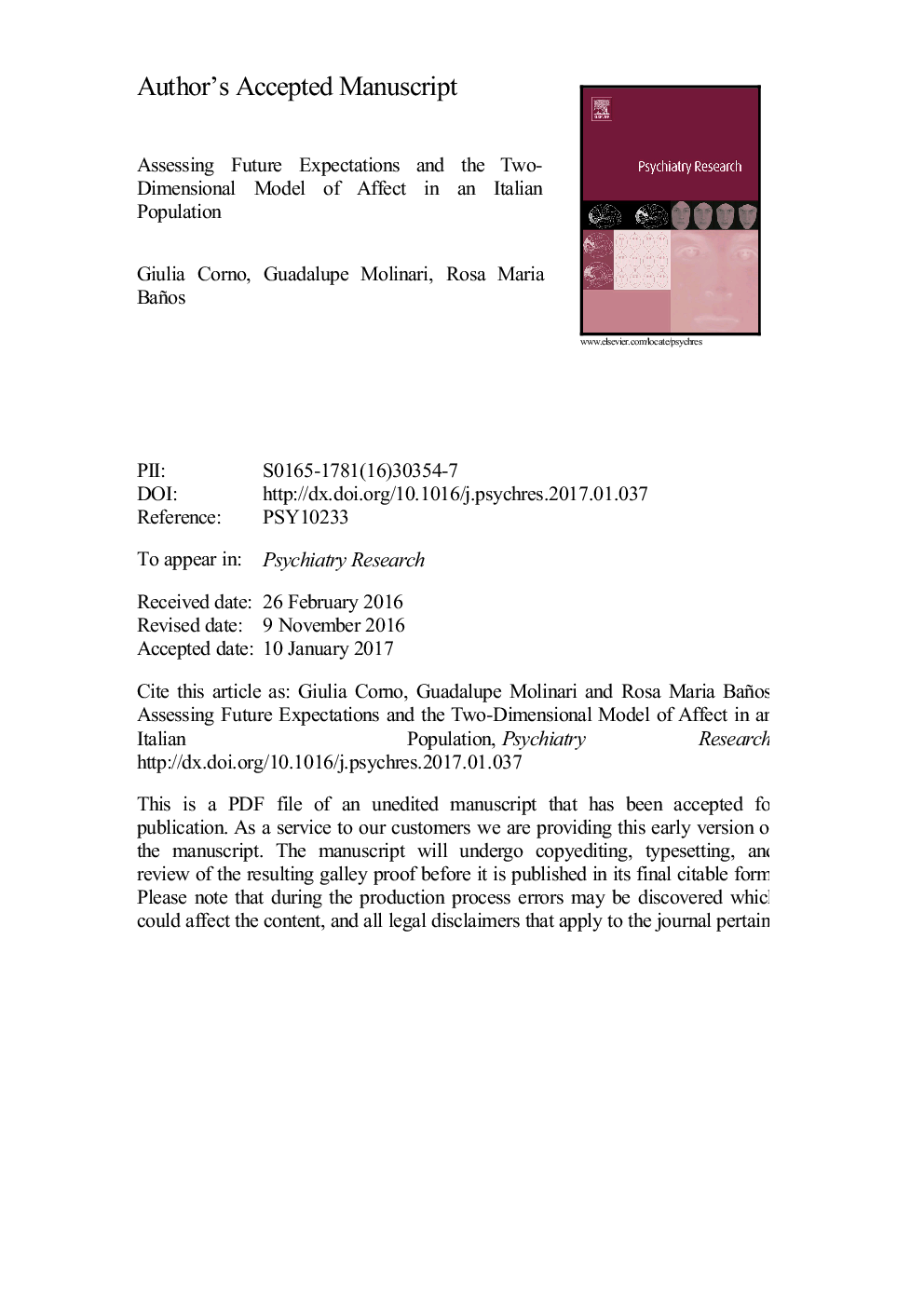ترجمه فارسی عنوان مقاله
ارزیابی انتظارات آینده و مدل دو بعدی تأثیر در یک جمعیت ایتالیایی
عنوان انگلیسی
Assessing future expectations and the two-dimensional model of affect in an Italian population
| کد مقاله | سال انتشار | تعداد صفحات مقاله انگلیسی |
|---|---|---|
| 123610 | 2017 | 15 صفحه PDF |
منبع

Publisher : Elsevier - Science Direct (الزویر - ساینس دایرکت)
Journal : Psychiatry Research, Volume 249, March 2017, Pages 226-231
ترجمه کلمات کلیدی
تفکر پیشرونده تأثیر مثبت، تأثیر منفی، اضطراب، افسردگی،
کلمات کلیدی انگلیسی
Future-directed thinking; Positive affect; Negative affect; Anxiety; Depression;

